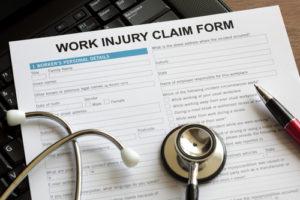

It’s common to assume that lawsuits are necessary after you suffer from a personal injury accident, like a car crash or a dog bite. However, injury claims usually don’t necessitate lawsuits. The decision to file a lawsuit can be affected by several case factors, like the willingness of an at-fault party to settle. Choosing to file a lawsuit is a decision that personal injury lawyers and their clients frequently tangle with.
Lawsuits Are Less Common Than You Think
“Judge Judy”, “Law and Order”, and a slew of other TV shows, movies, and books glorify the courtroom. This deluge of popular media involving lawsuits is misleading. Tort cases, a legal category that covers personal injury law, only make up a few of the lawsuits in US courts.
This infrequency of injury claim lawsuits stems from two factors. First, America is a litigious society (inclined towards filing lawsuits), meaning those exposed to liability, like drivers, businesses, and medical facilities, usually carry insurance that protects them from legal action. Second, lawsuits are usually less desirable than out-of-court settlements for these reasons:
- Lawsuits are often time-consuming
- They can be expensive
- They’re usually adversarial in nature
For these reasons, lawyers and insurers tend to do their best to avoid lawsuits whenever possible.
Why Would I Need to File a Lawsuit?
Civil case law is complex. The decision of whether to file a lawsuit or not is rarely straightforward. A personal injury lawyer can evaluate your case if you’re unsure about how to proceed.
Here’s one example of a case that could necessitate a lawsuit. Say that you’re out for a drive when another driver strikes your car. Due to the context of the accident, it’s evident that the other driver is at fault. However, after the dust settles, it becomes clear that the at-fault driver isn’t carrying insurance. To secure a settlement, in this case, you only have one option (unless you’re carrying uninsured motorist insurance); file a lawsuit.
This scenario isn’t common, though. Ohio mandates that drivers carry the following liability insurance minimums:
- $25,000 in bodily injury per person
- $50,000 in bodily injury per accident
- $25,000 in property damages per accident
This type of insurance protects you from the negligent behavior of other drivers. After an accident, provided you weren’t at fault, you can contact the liable party’s insurer to receive a settlement via their liability insurance plan.
For a free legal consultation, call (614) 538-1116
How Do I Receive a Settlement Without Filing a Lawsuit?
As noted previously, most potentially liable parties in a personal injury case usually carry insurance. This means that to secure settlement, you’ll likely need to communicate with the at-fault party’s insurer.
This process is less straightforward than it may seem. After an accident, dealing with your own insurer might prove easy. However, liability insurance providers are oftentimes more difficult to deal with. They may:
- Continue to offer you low-ball settlements
- Request that you provide a recorded statement and use the information you provide against you
- Scour the available evidence for proof that you were at fault
Working with a personal injury lawyer could provide you peace of mind during this process. They can manage insurance negotiations and push back against unfair settlement offers. What’s more, personal injury lawyers typically work on a contingency fee basis – meaning they don’t require any upfront fees and don’t get paid unless they win your case.
What Damages Are Available to Personal Injury Victims?
Personal injury victims are entitled to damages, whether they choose an insurance claim or lawsuit. Damages come in one of two forms: economic and non-economic.
Every personal injury accident comes with a cost. Economic damages target this financial toll by providing reimbursement to victims. They include:
- Medical expenses
- Lost wages
- The loss of a close personal relationship in cases involving wrongful death
- Property damages
Non-economic damages, while equally important, are less specific. Personal injury accidents don’t just exact a financial toll. They can also damage the mental health of victims. Trauma, grief, and anxiety are all common after the occurrence of an unexpected injury. These case factors can be folded into your settlement valuation via economic damages.
Click to contact our personal injury lawyers today
How Long Do I Have to File a Personal Injury Lawsuit in Ohio?
You need to keep track of deadlines if you hope to file a personal injury lawsuit in Ohio. This state has a personal injury statute of limitations of two years, per Ohio Revised Code Section 2305.10, meaning you usually have two years after your accident to file a lawsuit. Failure to adhere to this deadline can bar you from pursuing a lawsuit.
While it is true that lawsuits are less common than insurance claims in personal injury cases, you still shouldn’t ignore this legal deadline. It’s best to approach every personal injury case with all the available tools, lawsuits included. If you miss the statute of limitations, you have one less way to pursue compensation.
Complete a Free Case Evaluation form now
Speak With a Personal Injury Lawyer Today
Our Ohio personal injury lawyers are ready to represent you. We’ve supported clients as they’ve navigated the aftermath of car accidents, medical malpractice, dog bites, and more. Contact our offices for a free case review today.
Call or text (614) 538-1116 or complete a Free Case Evaluation form








